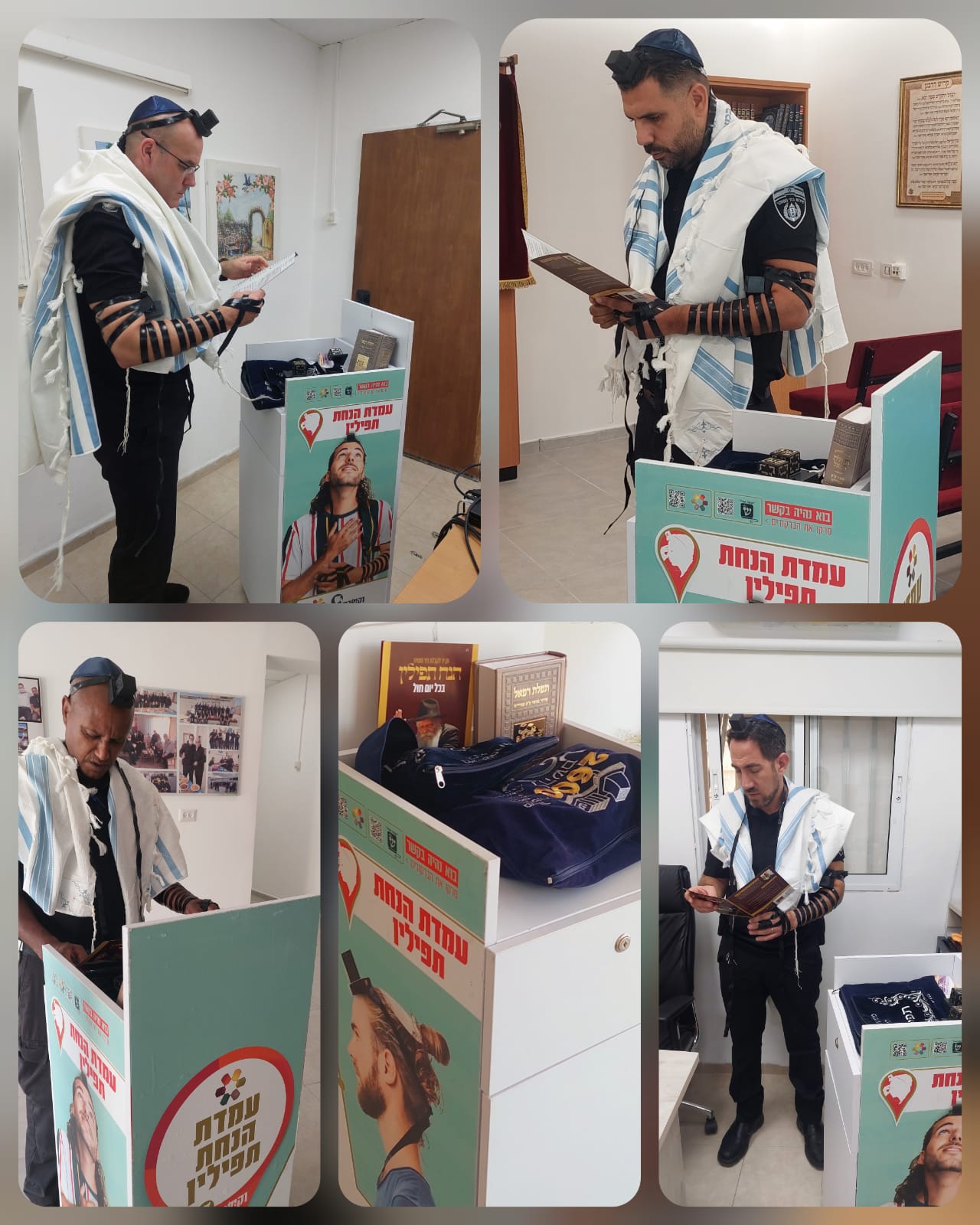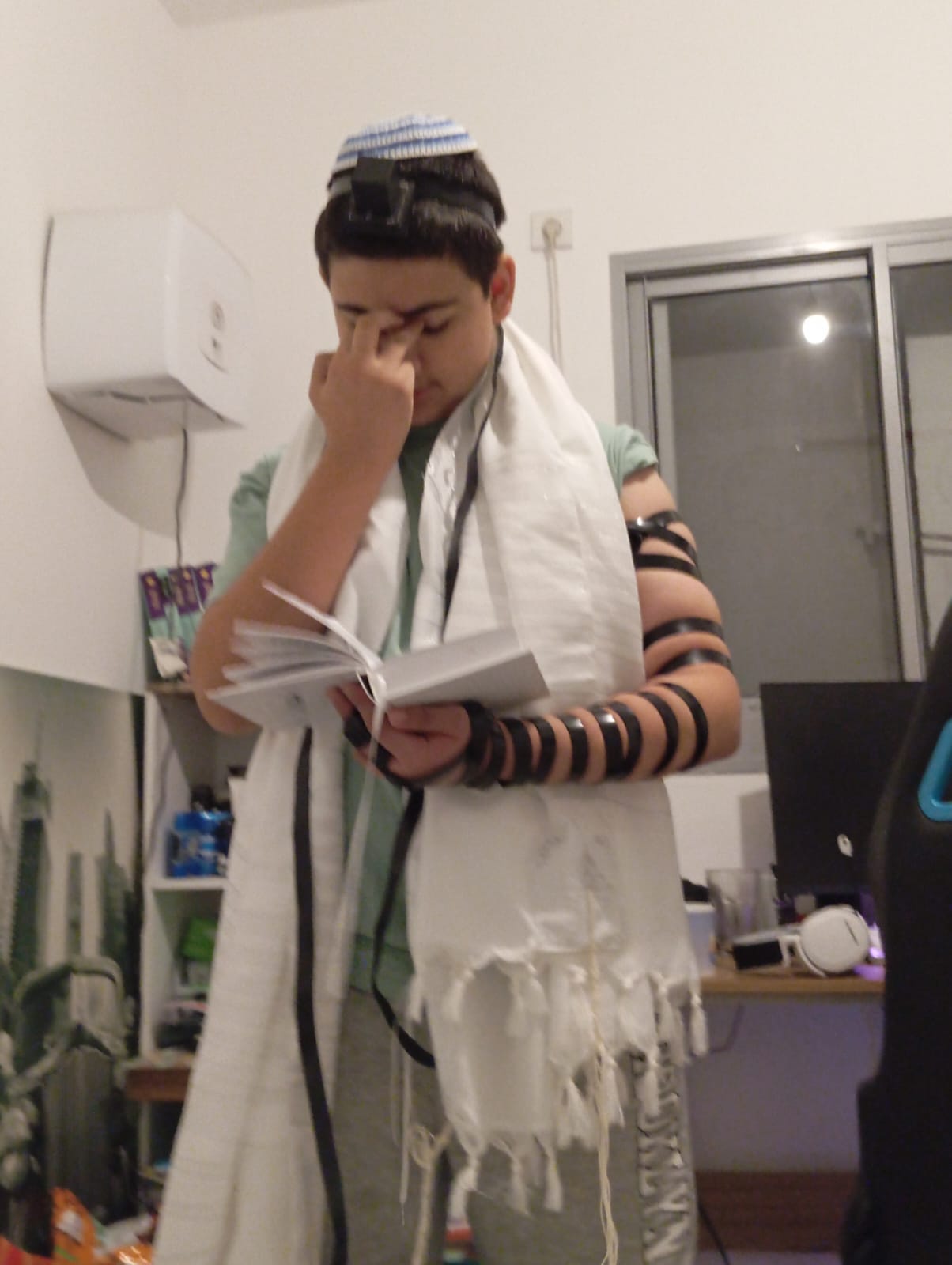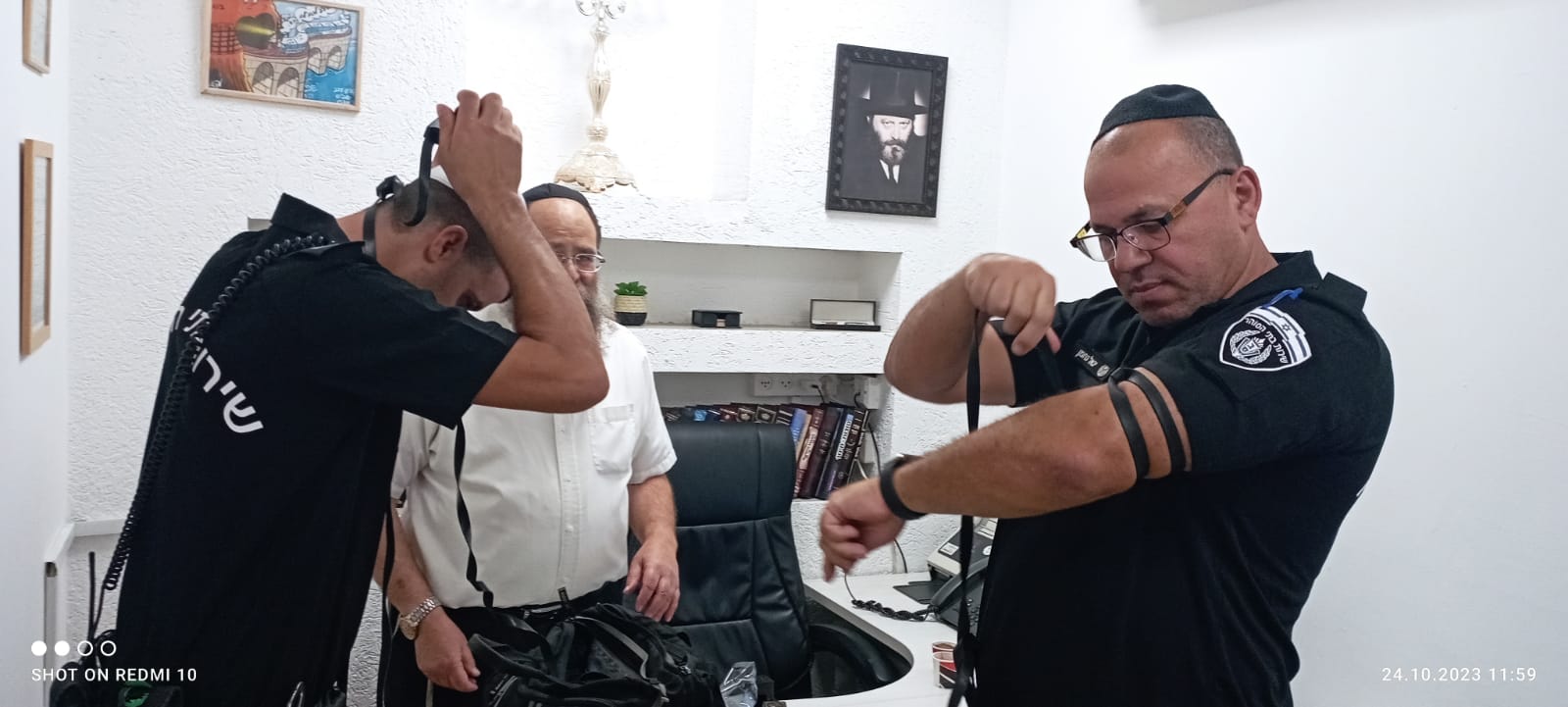"Inmates Constantly Ask How to Strengthen Themselves": Northern District Chaplain in the Israeli Prison Service Reveals Activities in Prisons
Over 1050 instances of putting on tefillin, communal challah separations, and open Jewish channels in inmate rooms are just some of the heartwarming phenomena currently seen in Northern District prisons. Northern District Chaplain shares more.
 Rabbi Avraham Asayag
Rabbi Avraham Asayag"Since the outbreak of the war, I observe a significant spiritual awakening around me all the time, it's moving and almost unbelievable," says Rabbi Avraham Asayag with excitement, the Northern District Rabbi in the Israeli Prison Service responsible for eight prisons across the district. He works there wholeheartedly, along with a diligent and dedicated team of rabbis.
As mentioned, during these days of war, Rabbi Asayag sees a great influx towards Jewish connection and a high interest in the topic from both the wardens and professional staff as well as the prisoners themselves.

Wanting to Strengthen and Draw Closer
"Immediately as the war started, wardens and professional staff in the prison service approached us, requesting us to come and offer support," Rabbi Asayag recounts. "Following this, I spoke with the chief rabbi of the prison service, Rabbi Ayal Salman, and his deputy, Rabbi Gabriel Ezra, as well as other rabbis. In a joint decision, we decided that the main rabbinical staff would organize prayer assemblies in all eight prisons of the Northern District. I visited the prisons along with the Northern District Commander, Commander Arik Yaakov, gathering professional staff, staff officers, and wardens in the synagogue for Selichot prayers, chapters of Psalms, accepting the yoke of heaven, shofar blowing, and a strengthening talk.
"The excitement was immense," Rabbi Asayag testifies, "it was evident that hearts were open. At the end of each meeting, I seized the opportunity to ask each participant to take on a small personal commitment. This led to great excitement, as individuals who had never observed Shabbat committed to observing it in its entirety, some pledged to bless before eating or wear a small tallit. Even after the assembly concluded, participants continued to be under its influence and talk about it. We all understood that we must seize this special time when people simply wish to be strengthened. Some also approached us, sharing that their children or spouses are fighting in Gaza, and the feeling that they have a way to act for their success gives them much hope – something so essential in these turbulent times.

Rabbi Asayag decided not to be content with the prayer assemblies, and he initiated "Operation Tefillin" as well. "We announced a special day where tefillin would be brought to the prisons, and everyone was truly excited and anticipated it," he recounts. "But in the end, even we were surprised, as the turn-out of wardens and commanders wanting to put on tefillin was immense. There were even staff wives asking their husbands to participate, as well as 14 and 15-year-old children of prison service workers putting on tefillin. The cherry on top was even longtime employees over the age of 60 came to put on tefillin, excitedly sharing: 'This is the first time we have put on tefillin since our bar mitzvah.'
If one thought that the story would end there, it turns out the next day many of the wardens contacted Rabbi Asayag asking: "When will the rabbi come again to help us put on tefillin?" "At that moment, I realized there's something heating up here and we must seize it," he states. "I quickly contacted the Hidabroot organization and asked them to purchase tefillin stations. Hidabroot responded quickly and the same day informed us: 'Come to Petach Tikva, waiting for you are eight tefillin stands and three pairs of tefillin.' Of course, we quickly collected all the equipment and distributed it among the Northern District prisons. From that moment, events developed rapidly – we placed the tefillin stations near the 'staff club,' the room designated for prison service workers to eat and rest. On the tefillin stand, we placed a tallit, a prayer book, and of course tefillin. Personally, I visited all eight prisons in our district, and I can testify firsthand that the awakening is great, and throughout the day, people stand in line to put on tefillin. We've already reached over 1050 instances of putting on tefillin. It's truly heartwarming.

Tzitzit, Shabbat Candles, and Challah Separations
After offering wardens the opportunity to put on tefillin, Rabbi Asayag decided it was time for the female staff, leading to the decision to hold challah separation ceremonies in all the prisons of the district. "We invited several female rabbis who went between the prisons, allowing 70-100 women staff members at each location to partake in the important mitzvah. "There were very touching scenes, and women who moved us greatly," shares Rabbi Asayag. "Afterward, we moved forward and distributed Shabbat candles to the female wardens, along with an elegant blessing. That week, 600 women reported lighting Shabbat candles. I do not know who continues this practice, but even one Shabbat where they performed the mitzvah is a world and more.
And what about the inmates? Do you also support their spiritual growth?
"Of course. The inmates constantly ask us for ways to strengthen themselves, and we try very hard to advise them and talk to them. We bring many holy books to the synagogues and also ensure that as part of their daily occupation, they tie tzitzit for soldiers. This provides them with satisfaction, and on the other hand, meets the large demand for tzitzit directed at us from the IDF. More than 2000 tzitzit have been made in the district so far. Additionally, to strengthen everyone, I requested special permission from the Northern District Commander to have the problematic content televisions replaced with Hidabroot channels. The approval was granted, and now as you pass through the rooms, Hidabroot is seen everywhere. Inmates listen to rabbinical lectures and various programs. I even saw members of minority groups listening in."

And Rabbi Asayag wishes to conclude with a particularly moving story: "A few weeks ago, an inmate approached me and asked: 'Honorable Rabbi, how can I do good for the people of Israel?' I replied to him: 'I don't impose anything on others, but since you asked, perhaps you can commit to observing Shabbat?' He responded: 'There's no way. I smoke three packs of cigarettes a day.' My response was: 'Then this coming Shabbat smoke only two, and as you abstain from the third pack, say to our Father in heaven: 'You know this is hard for me and I'm not smoking for Your sake, Creator of the Universe,' and during this time, read Psalms for the success of the Israel Defense Forces.' The inmate accepted this, and indeed it was so. Two weeks later he informed me: 'I observed Shabbat properly. I didn't smoke at all,' and from then on Shabbat for him is Shabbat."
And one cannot help but ask: how do you explain this great closeness?
"There is no logical explanation for this, besides the fact that perhaps the answer is that it's a positive and contagious 'illness.' When there is an atmosphere of strengthening around, it affects everyone. This is our opportunity to strengthen, without coercion or demands, out of love alone. To do everything for those who are far, and now wish so much to draw near."
Rabbi Asayag wishes to seize the opportunity to thank the prison service rabbis who were full partners in the activity: the chief rabbi of the prison service, Rabbi Ayal Salman, his deputy Rabbi Gabriel Ezra, as well as the national volunteer coordinator Rabbi Brod, and other rabbis, and of course the Hidabroot organization that provided the tefillin stands and accompanied the entire way. "May we always be worthy of increasing such activities," he says with satisfaction.


